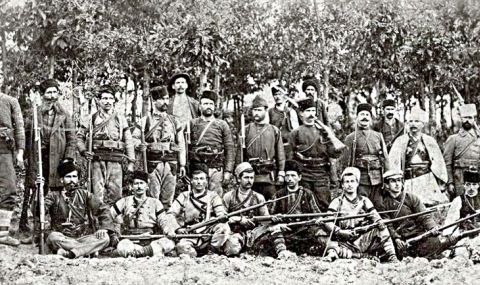On October 5, 1878, the Kresnensko - Razlogh Uprising broke out.
It was caused by the decisions of the Berlin Congress, which split up the newly liberated Bulgarian lands.
Bulgarians from Macedonia send petitions, memoirs and requests to the governments of the Great Powers and the Provisional Russian Government protesting against the decision to keep their lands within the Ottoman Empire.
There is no answer, and for this reason the Macedonian Bulgarians rebelled against the Ottoman rule in order to join the Principality of Bulgaria.
On October 5, a combined detachment of about 400 insurgents, divided into squads, under the general command of Stoyan Karastoilov (Stoyan Voivode) and Adam Kalmikov attacked the Turkish garrison stationed at the Kresna khans. After an 18-hour battle, the Turkish army surrendered. 119 soldiers and two officers were captured.
A number of villages were liberated. In addition to the Kresna Gorge, insurgent actions began in Nevrokopsko, Demirhisarsko, Sersko, Maleshevsko and other areas. At the beginning of November, the uprising also covered the villages of the Razlog valley. But despite the displayed heroism, the Turks went on the offensive. On November 11, 1878, Kresna was burned down. The same share reaches 12 more villages from the Kresnen Gorge. Towards the end of November, the uprising in Razlozhko was also defeated.
On the right bank of the Struma River, however, the insurgent actions continued until February 1879, but the split in the leadership had a strong negative result.
On May 25, 1879, Natanail Ohridski disbanded the troops and the uprising was ended.
The brutality of the Turkish army and bashibozuk over the population forced more than 25,000 people from Melnishko, Gornojumaisko, Razlozhko and other parts of Macedonia to leave their native villages and seek refuge in the Principality of Bulgaria.
Officially, Russia dissociates itself from the uprising, but the middle and low level in the administration of the provisional Russian government in Bulgaria, however, supports the rebellion. The remaining Great Powers, in the form of Great Britain and Austria-Hungary, are against it.
